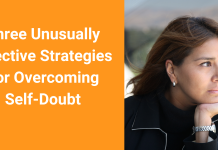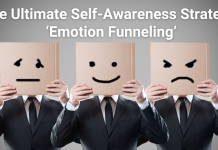
What's the secret to creating a calmer, more fulfilling life?
You’re a hard work machine, a hustle master, and a multi-tasker of epic proportions. You’re the first in and the last to leave. You’re plugged in at all times and crushing deadlines that are always looming. Then, quite suddenly, you’re dropping the ball, you’re frazzled, and you can’t think straight. You’re sleep deprived, stressed out, and overworked. You start making mistakes. If only you had taken the time you needed to detach and reassess…
Marilyn Paul has a Ph.D. from Yale and an MBA from Cornell, she takes a unique approach that blends inner work and practical skills training. She's an expert on time management and well-being. She's been featured on national media, including NPR, Chicago Tribune, USA Today and CNN. She's the best-selling author of It's Hard To Make A Difference When You Can't Find Your Keys. Her new book is, An Oasis In Time: How A Day Of Rest Can Save Your Life. I recently interviewed Marilyn for the LEADx Podcast, where we talked about the benefits of unplugging and taking a real break. (The interview below has been lightly edited for space and clarity.)
Kevin Kruse: Why did you decide to write this book? Did anything trigger it?
Marilyn Paul: Over time, I've worked more and more with clients where people are overwhelmed, overworked, and for many of them, many of the people and the clients I work with, don't see how to take a break. There's always something else to do, something important to do. Even weekends are full of either work or errands or just catching up. I could see that they needed to learn how to pace themselves. When I say “Pace yourself,” to many people that means slow down and don't do a good job. I, myself, about many years ago, learned about keeping a Sabbath. I started to, very reluctantly, and discovered that it actually does save my life. I do have a Ph.D. from Yale. I work all around the country. If I did not have a full day off each week, and I mean off, I would not be able to accomplish what I've been able to do.
Kruse: Is there any research that you think supports this?
Paul: There's a lot of research that supports this. All kinds of research from neuroscience, to people who study rest and sleep. There's a researcher in Europe that has actually shown that when you take time off for relaxation, which she requires for the real rest, and have complete mental detachment from work, and a different kind of mastery experience. According to her, this leads to tremendous gains in productivity. Rest is not just lying down flat on our backs and watching TV; rest is actually detaching from our everyday life, turning towards something different, whether it's our pet, our children, arts and crafts or something athletic, out in nature, and doing something that allows our brain to rest. The resting brain has been proven to lead to more creativity.
Kruse: What do you say to those who feel happier when they’re working?
Paul: I think that everyone's different, and for some people that's true. For some people, though, there are scary moments when you break your regular habits. I would ask those people to honestly look at their days and ask, “Are you really productive, or are you filling your days up with busy work? Are you getting what you want to get done?” Indeed, we're all different. There's some people who only require five hours of sleep a night. When I work with people, I find that even the people who say they love to work around the clock, which was me at one point. I have workaholic tendencies myself. I never wanted to take a day off a week. In fact, I'm surprised to be having this conversation with you now. It's sort of not me, or not my earlier idea of myself.
The benefits are far more profound. It's not just rest. It's the way we connect with other people. It's the potential to have the insights into our own lives. It's the ways that we can reflect on our own steadiness and bring our level headedness back into our often chaotic and frantic lives. We become an island of calm in a world that really is swirling.
Kruse: Often, I think I'm too busy for breaks and yet any time my business has a breakthrough it’s when I take one.
Paul: Absolutely. What I often say to people now because the idea of a day off a week or even the idea of a Sabbath, which a lot of people don't like the idea of a Sabbath, I say, “Okay, let go.” Just like you were saying, let it go. Let go of those ideas and start with an hour that you really set aside. You put your phone down for that hour. You allow yourself to stop trying to achieve anything and see how you feel. If you like it, you can add another hour.
Kruse: What was the hardest part in the transition? What was your own experience like?
Paul: I was introduced to this idea of a day off a week, I'm Jewish and I was invited to a Shabbat dinner by a friend. He asked me several times. I didn't want to go. Finally, I went. And I loved it. There was a peace. People were singing songs. It was really delightful, but I went home and went back to work. Then I learned that I could do this with other people, and I added an hour at a time. Never in my wildest dreams did I think I would end up taking a day off every week, but I kept seeing the benefits accrue. I thought better. I got more focused. I became calmer. My life became happier.
When I met my husband, who is not interested in this type of practice, I said, “This is what I do in my life.” The reason I wrote the book is we had to compromise. The book comes out of taking very different views about this idea of a day off and making it accessible to people who might not want anything religious at all, who do want play time, but how the heck do you do that and actually carve out a day a week? It does seem impossible.
Kruse: But you've done it. A lot of others are too.
Paul: I'm actually amazed at how many people I meet. In my book, I give lots of examples of all kinds of time off. In fact, I met a woman who worked for a government agency, had a very dry numbers crunching job, and her idea of a great oasis in time was to volunteer at the local ER for about three hours on a Friday night. You could say, “What's restful about that?” but for her, it enabled her to completely detach from work, get back to where real people really needed her, and she felt enormously refreshed.
Kruse: Do you think looking at the phone is okay if it's not work-related, or do you feel we need a digital detox as well?
Paul: I like the idea of a digital detox. There's also a friend of mine who takes what he calls a “Text Sabbath.” Tiffany Shlain, the filmmaker takes a text Shabbat. I think there's enormous benefit because we're all addicted to these devices, to practice staying away from them because our experience of life changes when we stop checking our phones. Maybe we're not checking every two minutes. Maybe it's every five or every ten. It's enormously beneficial to just tuck them away in our cell phone sleeping bag, close up the computer, and see what life is like without the digital input.
Kruse: Amazing things happen when we put the phones away, right?
Paul: Yes, and people experience, often, an awe. We're living for those moments where we say, “Wow!” Here we are on this amazing planet. Research has been done on awe, and awe helps us be happier, kinder and more creative. We want to make space in our lives for those heart opening moments when we can notice who we really are in this beautiful universe of ours.
Kruse: I always like to ask our listeners to get 1% better everyday. Give us a challenge.
Paul: I would say every day, just for starters, take five, or even go wild and take ten minutes where you consciously step away from your digital devices, maybe stretch a little bit, take some deep breaths, and remember what it is that you love about life, what it is you love about the people in your life, and what you are here for. Just do that for five or ten minutes a day. It can be profound in helping you re-center yourself and give you the energy to go back into the fray.
—
Kevin Kruse is a New York Times bestselling author, host of the popular LEADx Leadership Podcast, and the CEO/Founder of LEADx.org, which provides free world-class leadership training, professional development and career advice for anyone, anywhere.





